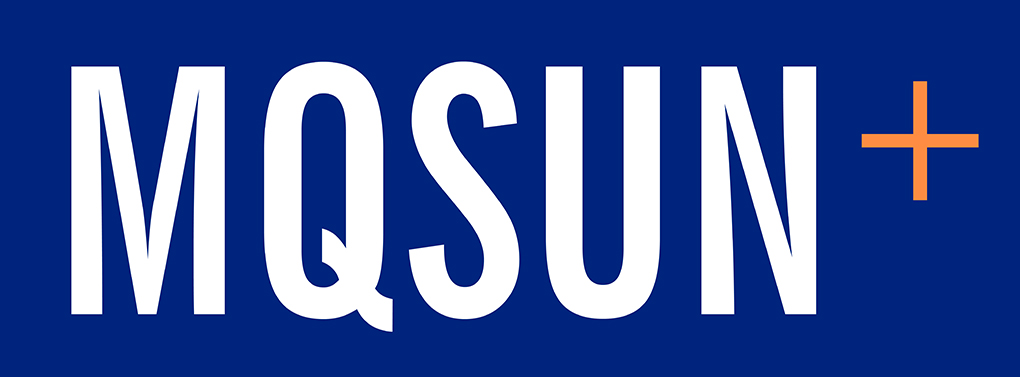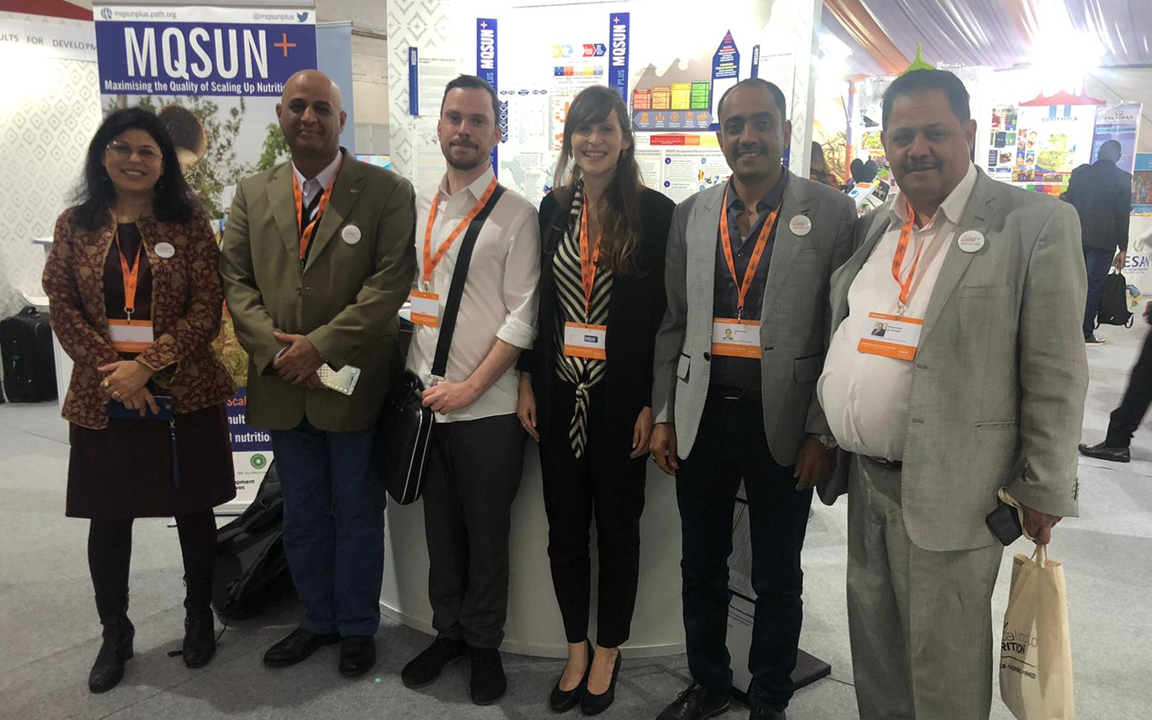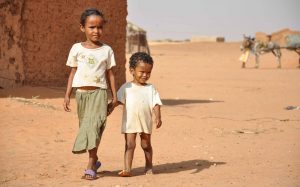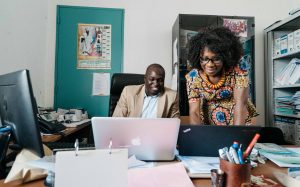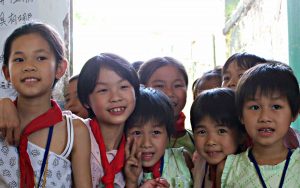The flagship event for the Scaling Up Nutrition (SUN) Movement—the SUN Global Gathering—is a multi-day convening of SUN Focal Points as well as other government representatives, international non-governmental organisations, donors and key stakeholders, like technical assistance providers, who support these countries in scaling up nutrition. The event provides an opportunity for the Movement to take stock of current progress and challenges, whilst at the same time, reflecting on the implementation of global nutrition initiatives. In support of the SUN Movement Secretariat (SMS), MQSUN+ has assisted in the development and execution of four out of the five previous SUN Global Gatherings, including this year’s event in Kathmandu, Nepal from 4 to 7 November. Integral to this support was Monica Kothari—the MQSUN+ Lead for SUN Technical Assistance with PATH—who has managed technical assistance assignments for SMS and SUN countries for the last five years. Ms. Kothari has more than 20 years of experience in managing and providing leadership for planning, implementation and monitoring and evaluation of multisectoral nutrition programmes. She has attended the last three Global Gatherings: Rome, Italy in 2014, Abidjan, Côte d’Ivoire in 2017, and now Kathmandu, Nepal in 2019.
Following this fifth Global Gathering, MQSUN+ sat down with Monica to get her perspective on its history and her take on this year’s event.
From your experience attending multiple Global Gatherings, how have you seen them evolve?
I would like to start that all the Global Gatherings I have attended so far have been an immense learning experience—especially, taking first-hand stock of rich peer-to-peer learning between countries. I think in terms of the evolution, I would definitely say that this time I was very impressed with the content of the sessions. The content overall throughout the Global Gathering was well crafted—taking care of the needs of SUN countries and the global audience. The themes resonated with what countries wanted to hear. In previous Global Gatherings, my observation was not all sessions aligned with topics of interest for participants. So from that perspective, I really enjoyed this Global Gathering where all the stakeholders had something to take away.
The other thing that stood out for me at this Global Gathering was the organisation of the Global Village and events planned around the Village. There was a lot of enthusiasm from countries to showcase their work. Maybe it is because they are more advanced now in creating their policies and in implementing them, so they had a lot to showcase around the SUN cycle. As well, having side events in the Global Village was a great idea—‘Facilitating the nutrition champions’ was my personal favourite. Finally, the way the Global Gathering sessions were planned this year gave many countries the opportunity to voice their opinions and interact with each other, which I thought was better planned and executed.
How have you seen the technical topics change from year to year?
I would like to think that the topics covered during the SUN Global Gathering have evolved over the years. My observation is that the SMS tries to address the most recent discussions that are ongoing in the nutrition realm. However, this year was different in that SUN countries were surveyed before finalising the session topics to respond to the needs of the countries. A new focus this year was around food systems, which I do not think I have heard as much in previous Global Gatherings. On the other hand, one consistent theme that I have heard throughout the years is around the humanitarian and development divide, which has consistently been on the panel and is still a big discussion that I do not think we have a good solution for yet. So the discussion continues. Another consistent topic is the double burden [of malnutrition], which definitely stays on as a topic. More recently, issues around climate and universal health coverage have come into the discussion as well. Hopefully, in a few years, topics like these will also become common knowledge.
From previous Global Gatherings, discussions around the common results framework (CRF) and budget analysis and financing were repeat topics. This year, I felt that those topics were a lot more familiar to the country audience compared to the previous Global Gathering because countries have heard it so many times that now these terminologies are no longer new to them—they seem to understand the CRF and have advanced themselves over the past five to six years to where it does not need to be explained further. I would like to believe that something similar can be said for emerging topics like innovative financing—an area that I think was handled in a more tangible way for countries during this Global Gathering, and I personally learned aspects of innovative financing that I was not aware of previously. For example, the World Bank has this whole Global Financing Facility, as well as a funding mechanism on the nutrition-sensitive side as well. Discussions around the Global Financing Facility were very helpful for countries as well as having someone to answer questions around these topics.
In the previous Global Gatherings that you went to, were countries engaged in the same way in terms of participation in sessions as they were this year, or is that also something that has evolved over time?
The effort of engaging countries has always been there and the intent has always been there. However, I think in this Global Gathering, from the beginning with how the sessions were planned, there was a strong emphasis on hearing country voices. One thing planned really well this time was the SUN Focal Point session on the first day that the TAN [Technical Assistance for Nutrition] partners, including MQSUN+, supported. It was well organised and well executed. The organisers gathered all Focal Points from SUN countries together in one room, explained what they wanted to get out of this Global Gathering and then heard from countries what they wanted to get out of the Global Gathering—which was really informative in both directions. It gave the opportunity for the SMS to hear from the Focal Points, and SUN Focal Points to hear what SMS’s purpose of this Global Gathering was.
Secondly, I felt that in this Global Gathering countries had more time to participate and share ideas because there were minimal presentations and very strictly timed panel discussions which then moved directly to group work facilitated by technical assistance support. The space provided to countries to voice their opinions in my view worked particularly well this year.
The engagement of SUN Executive Committee members to facilitate various sessions at the Global Gathering was a refreshing change and was well planned and implemented.
How would you say MQSUN+ has been involved in providing technical support and bringing our own expertise to the Global Gathering? Have there been any changes in our support between the years, and more specifically, what was our support this year?
Our support over the years has become much stronger in terms of the breadth and topic-specific support. Starting with the New York SUN Global Gathering, which was the first SUN Global Gathering, we were only there to support the thought process around the financing/costing piece, which MQSUN supported for the N4G [Nutrition for Growth] commitment for the SMS. In the subsequent Global Gatherings, we have been providing additional support to the SMS to organise and facilitate certain sessions. This year, we helped in pre-planning and developing the content of 9 sessions1, the dissemination materials for these sessions, and in actively facilitating them. We also, of course, had our own session specifically on technical assistance. In this Global Gathering, we had a much broader role, which definitely shows how MQSUN+ participation has gotten bigger and better in the scope of technical assistance that we have provided.
What do you feel country representatives get out of this conference?
I could tell that peer-to-peer learning was amazing this year. For example, in my first session facilitating a discussion with the SUN Focal Points, one topic that came up is that countries find themselves in a difficult position when donor strategies do not align to country strategies. At first, there was a bit of hesitation in discussing such a topic, but once one delegate started that conversation, everyone shared their views around challenges/solutions working with donors. This to me was such a strong case of peer-to-peer learning and actively recognising and reinforcing there are strong similarities in the issues that countries face. This opens the door for countries to discuss how someone else might be tackling similar issues and potential solutions for their context. To me, that informal learning is invaluable.
The second thing, in my opinion, that is valuable for representatives is meeting global technical experts or meeting face-to-face with people that they interact with remotely, like MQSUN+. I could see how the MQSUN+ team was connecting individually with countries we support and interacting at that level is something entirely different. It helps in building trust and provides a comfort factor that countries can take away with them—ultimately strengthening working relationships for TA moving forward. I believe that it is a really good takeaway that a forum like the Global Gathering helps in building relationships, which can be leveraged to transfer technical skills for sustainability.
What do you think are some of the key takeaways from this year’s Global Gathering?
I would say a primary focus this year was on SUN 3.0 [the next phase of the SUN Movement] in terms of: what do countries want to see from it, where the SUN Movement should go and what the SUN 3.0 strategy should look like. There was also talk around data and accountability—specifically how accountability mechanisms are going to work in SUN 3.0.
There was also a lot of emphasis on implementation, operationalisation and innovative financing in terms of how to align funding with national priorities.
Finally, there were conversations around N4G Japan 2020. Although a big caveat on N4G Japan 2020 is that global leaders are very much familiar with this, but country representatives were not conversant with what it is all about, which was interesting. In terms of technical assistance, countries are very much aware of MQSUN+ and technical support by TAN and that it is a valuable mechanism for them. However, they would like to see that further evolve and be supported by donors. On the other hand, not many experts or donors were very much aware of or familiar with this mechanism in terms of what technical assistance is and how it works.
One item that countries did not see come out clearly was around capacity strengthening, which is maybe something to be addressed in greater detail during the next Global Gathering.
How do you see these learnings translating into the support that MQSUN+ provides to countries? How do you see us translating this into work in the future?
One key aspect that was extremely helpful for MQSUN+ to have been present at the Global Gathering was to actually be able to build relationships in person with many of the countries to whom we are providing support. I believe this builds trust with countries, and going forward, this trust can help in actually extending our TA [technical assistance] to the next level. Different countries we are supporting are at different stages of technical assistance, but now that we have better and stronger relationships with these countries, I would like to believe that this can translate into better collaboration in providing technical assistance to countries and maybe help better capacity and transferring knowledge.
A similar rule of thumb applies for us building such relationships with other TA providers who were present at the Global Gathering—to build linkages to better cater the needs of the countries and build capacity for sustainability.
Based on your experiences, how do you see future Global Gatherings being further refined and improved, especially in light of how countries themselves are evolving and moving along in their nutrition planning processes?
I noticed that some of the same SUN countries are invited to speak on multiple panels. In future Global Gatherings, it might be beneficial to make a conscious effort to invite countries who do not seem to be very vocal—or are not very high profile—but still might have something to share and contribute on different topics. Future Global Gatherings should consider bringing them to the forefront. This may take extra effort to prepare these countries to participate in a session, but in my opinion, it would be worth the effort.
Do you have any other final thoughts?
I will say that, in Nepal, I noticed more experts attending the SUN Global Gathering than in previous years. I do not remember such a broad presence of donors in the innovative financing space at the Global Gathering either. This was clearly an indication in the shift that some donors are interested in funding SUN efforts if shown proper accountability and impact.
My observation was that the Global Gathering was better coordinated between the technical assistance providers compared to previous years, for sure. And finally, SMS has been learning from previous experiences and has gone through an organic evolution to better organise these events for the benefit of both country and global nutrition actors.
We want to thank Ms. Kothari for taking the time to talk with MQSUN+ about her experience participating in the last three Global Gatherings.
1 The sessions MQSUN+ supported were on: (1) SUN Focal Point regional roundtable; (2) SUN Joint Annual Assessments; (3) country perspectives on SUN 3.0; (4) sustained political commitment for SUN; (5) data for nutrition decision-making; (6) financial tracking; (7) resilience for scaling up nutrition; (8) lessons learned from SUN countries; and (9) technical assistance for SUN.
